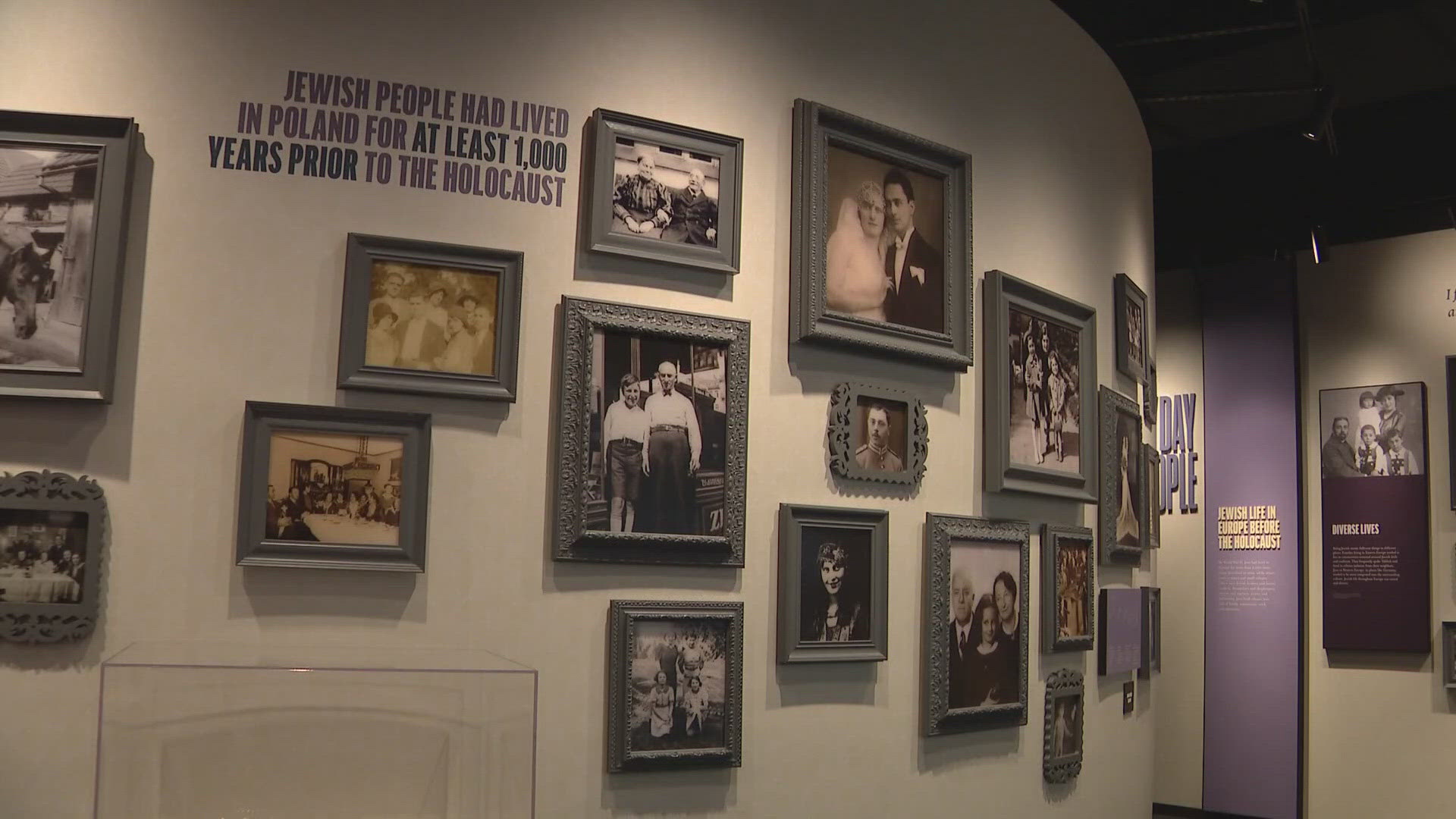ST. LOUIS — A day of remembrance for those killed during the Holocaust as well as the survivors is a challenging time for Jewish people nationwide. Particularly in the wake of many Pro-Palestinian protests.
On Sunday, they focused primarily on holding space for the six million Jews murdered during the Holocaust.
St. Louis is home to about 900 Holocaust survivors according to the St. Louis Kaplan Feldman Holocaust Museum. Several like Liesel Aschenbrand shared their stories on May 5 through family members such as Dee Herrmann. The 92-year-old Aschenbrand telling 5 On Your Side she still has nightmares.
"Rats, mice, dirt and hunger were constant companions," Herrmann said from the remarks prepared by Aschenbrand about her times in the concentration camps. "In early 1941, we were transported to another camp called Riversaltes."
Riversaltes was a concentration like one of the many Vera Emmons's mother survived when she was originally taken from Berlin.
She was named "Vera" after the sister her mother, Gerda Nothmann Luner, lost while spending two years in multiple camps around 1943.
Before she passed about 25 years ago, Nothmann Luner used to say she survived the Holocaust because of "luck" and being skilled with electronics. It afforded her the ability to travel around to other barbed wire compounds to use her abilities while being captive.
Nothmann Luner finally made it to America in 1946 when she was 18.
Remembering her mother as "quiet," Emmons told 5 On Your Side, "Not because she didn't have any opinions but she was just not one for small talk. She was very smart, very good at languages."
St. Louis Kaplan Feldman Holocaust Museum spread awareness at Sunday's gathering and came together after the Pro-Palestinian protests this last week at Washington University in St. Louis.
"The devastation of the Israelis, the devastation of the Palestinians, it's not good for anybody," Myron Freedman, the museum's executive director, said. "But really, the museum is a resource for remembering the history. So when you hear some of these chants, you wonder, are people paying attention to how anti-Semitism took root years ago leading up to the Holocaust?"
Museum leaders highlighted that one of the most crucial parts of this commemoration is to teach lessons that still need to be learned especially when talking about the Israeli hostages.
"We want to make sure that people who are held against their will and are in horrible situations are released," St. Louis Holocaust Museum Director of Education Helen Turner said. "October 7 was the largest massacre of Jewish people since the Holocaust. So, when we say never again, it very clearly has echoes today."
Millions of people who were not Jewish were also killed by the Nazis during the Holocaust, including LGBTQ individuals, the physically and mentally disabled, political adversaries, and massive numbers of people in conquered Poland and Slavic countries.

